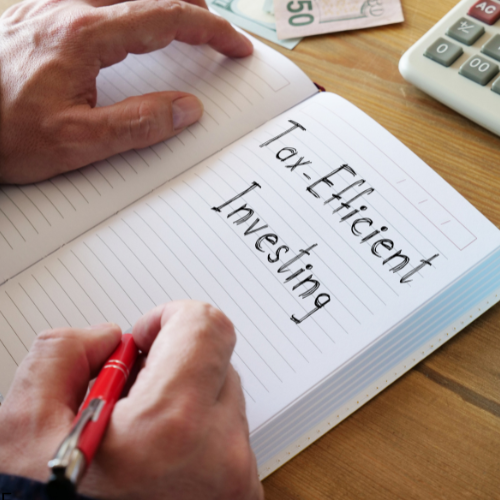Tax-efficient investing is the strategy of structuring your investment portfolio to reduce the impact of taxes, allowing you to keep more of your returns. By understanding how taxes affect different investment types and accounts, you can optimize your financial outcomes while staying compliant with tax regulations.

What is Tax-Efficient Investing?
Tax-efficient investing involves selecting and managing investments to minimize tax liabilities. This includes choosing the right accounts, such as tax-deferred or tax-exempt options, and strategically placing investments in those accounts to maximize tax advantages.
Why is Tax Efficiency Important?
- Increased Returns: Reducing taxes allows more of your earnings to compound over time.
- Long-Term Growth: Tax-efficient strategies enhance portfolio growth and financial stability.
- Compliance: Proper planning ensures adherence to tax laws while optimizing savings.
Strategies for Tax-Efficient Investing
-
Use Tax-Advantaged Accounts
- Tax-Deferred Accounts: Accounts like 401(k)s and IRAs allow your investments to grow without immediate taxation, deferring taxes until withdrawal.
- Tax-Exempt Accounts: Roth IRAs and Health Savings Accounts (HSAs) provide tax-free withdrawals under certain conditions.
-
Prioritize Tax-Efficient Investments
- Index Funds and ETFs: These typically have lower turnover rates, generating fewer taxable events.
- Municipal Bonds: Offer tax-free interest income, especially beneficial for those in higher tax brackets.
-
Strategically Place Investments
- Place tax-efficient assets like ETFs in taxable accounts.
- Hold tax-inefficient investments, such as bonds and actively managed funds, in tax-advantaged accounts.
-
Harvest Tax Losses
- Sell underperforming assets to offset gains and reduce your taxable income, a practice known as tax-loss harvesting.
-
Timing Matters
- Hold investments for more than one year to qualify for long-term capital gains rates, which are generally lower than short-term rates.
-
Optimize Withdrawals in Retirement
- Plan withdrawals strategically to minimize taxes, starting with required minimum distributions (RMDs) and tapping tax-exempt accounts last.
Benefits of Tax-Efficient Investing
- Higher Net Returns: Keep more of your earnings for reinvestment or other uses.
- Better Cash Flow: Reduced tax burdens free up funds for additional investments or expenses.
- Alignment with Goals: Tailored strategies ensure your financial plans remain tax-efficient as they evolve.
Common Pitfalls to Avoid
- Ignoring Tax Consequences: Failing to plan can lead to unnecessary tax liabilities.
- Overlooking Tax-Advantaged Accounts: Missing out on opportunities to defer or eliminate taxes.
- Neglecting Professional Advice: Tax laws are complex and subject to change, so working with a financial advisor or tax professional is essential.
Conclusion
Tax-efficient investing is a powerful way to enhance your financial strategy and maximize wealth over time. By understanding tax implications and leveraging smart investment techniques, you can reduce your tax burden and achieve your financial goals more effectively.
